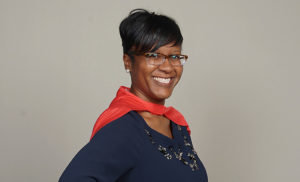 Artika Tyner (Photo submitted)
Artika Tyner (Photo submitted)The 2020 U.S. Census is of critical importance. It will shape the future of our community. To raise awareness about the Census, Planting People Growing Justice in partnership with Ramsey County hosted a community forum. The esteemed panelists were: Judge LaJune Lange (ret.) and Kevin Reese. “It was an eye-opening and valuable event that helped me to understand the importance of the census and how to mobilize my community to be counted,” according to Honorable Bukola Oriola, Former Member, U.S. Advisory Council on Human Trafficking.
One key takeaway from the event is: there is still time for you to be counted. Being counted means that our community will get the important resources we need. Census numbers are used by the federal and state government to decide how to spend money on things like schools, healthcare, and roads. It helps fund programs like Medicaid, SNAP (food stamps), Section 8, and school lunch programs. Further, the Census is a matter of equity. By participating in the Census, you will help to ensure equity in the amount of money that will be distributed to our community
Census numbers also determine fair political representation from the local level of city council to the federal level in Congress. The Census determines how many representatives each state gets in the U.S. House of Representatives. In 2020, Minnesota is at risk of losing a legislative seat. Projections show we could lose a seat by a mere 27,000 people not being counted. Alternatively, Minnesota could gain a seat by the same amount of participation. Remember, in 2010, we secured the last seat by a mere estimated 8,000 people counted.
Dealing with the COVID-19 pandemic has pushed thoughts of the U.S. Census out of the minds of many, but the Census is mandatory by law and can be completed by mail, phone, or online. It is also available in more than a dozen languages. There is still time for everyone to let their voices be heard and make a real difference in their community and state. Census takers will begin conducting home interviews with anyone that has not responded to the Census in August.
There are numerous demographic groups in Minnesota that are projected to be undercounted.
• Children ages 0-4 (350,000)
• Renters (1,300,000)
• Highly mobile persons
• Young adults (especially those in college) (Ages 18-24: 505,783; College: 301,000)
• Racial and ethnic minorities (1,060,000)
• Native/Indigenous people (AIAOIC: 105,477)
• Non-English speakers (Less than “very well” 233,073)
• Low-income persons (185% FPL: 1,156,985. 100% FPL: 517,476)
• Persons experiencing homelessness (10,000)
• Undocumented immigrants (80,000)
• Persons who distrust the government
• Persons with mental or physical disabilities (584,974)
(Minnesota State Demographic Center/We Count Minnesota)
Judge LaJune Lange (ret.) reminds us that the “Census makes us visible.” Many are undercounted due to fear, privacy concerns, and confusion about the counting process. You are not required to be a U.S. citizen to complete the Census. All citizens, noncitizens, and the foreign-born population (including: “unauthorized migrants’) are required to be counted. The Census does not identify individuals or their families. “All data at the Census Bureau, whether obtained from surveys or records from other agencies, are protected from disclosure and kept confidential under the law” (census.gov).
When filling out the Census for your home, you should count everyone who is living there as of April 1, 2020. This includes anyone—related or unrelated to you—who lives and sleeps at your home most of the time. Please include young children, babies, and anyone who is staying in your home on April 1 and does not have a “usual home elsewhere” (census.gov).
It is of critical importance for each of us to be a leader by reminding your family, neighbors, and friends to be counted. 17.7 % of Minnesotans (or 965,000) will not self-respond to the Census without additional follow up. Kevin Reese, Director of Criminal Justice Reform- Voices for Racial Justice, encourages us to use our contact lists in our cell phones to call each individual and remind them about the Census. He describes this as a process of relational organizing where community members mobilize their networks in order to facilitate the process of social change. He reminds us: “get counted and get active.”
Remember, I count, my family counts. You count, your family counts. Our community counts.
To fill it out online, go to my2020census.gov. To talk with a census worker over the phone, call 844-330-2020.
Be a Leader Event Video Recording: https://www.youtube.com/watch?v=YsJ-UjOnTGY&fbclid=IwAR2lLWEYqjUvLyz2QI1Zf3wnRinSJ_5tXSyWV3lsb0ElArvgkvPsldDB3b8
Comments
No comments on this item Please log in to comment by clicking here